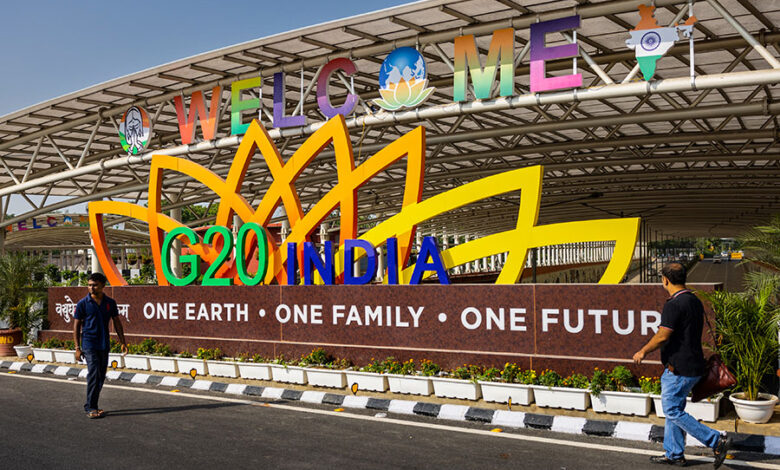Key Outcomes of the G20 2023 Summit

The 18th G20 Summit of 2023, the first time held in New Delhi concluded with a strong message about the nation’s contribution in achieving global growth.
Adhering to the principle of Vasudhaiva Kutumbakam (The World Is One Family), India’s leadership during its G20 presidency has demonstrated a forward-looking stance. The results of the deliberations have established a noteworthy example of global collaboration transcending geopolitical concerns. Beyond merely a diplomatic achievement, the unanimous Delhi Declaration emphasizes India’s role in spearheading inclusive economic development and fortifying the framework of multilateralism.
Commitment to clean energy
The summit’s significant achievement lies in its focus on clean energy and addressing energy security, recognizing the pivotal role energy plays in meeting global economic growth expectations. With India’s leadership, developed G20 member nations have committed to providing USD 100 billion for climate finance, representing a crucial milestone in the battle against climate change. This commitment also offers these nations an opportunity to align with their net-zero targets.
Additionally, the pledge to reduce coal usage in accordance with national requirements and triple renewable energy sources by 2030 sets a guiding principle for high-emission sectors. While the declaration strongly advocates a clean energy future, companies in various industries must intensify their Environmental, Social, and Corporate Governance (ESG) objectives. India, already a leader in ESG metrics and disclosures, is now paving the way for the rest of the world.
The proposal to establish a Green Hydrogen Innovation Center, led by the International Solar Alliance (ISA), holds immense potential for advancing existing hydrogen-based projects. This alliance represents a significant stride in fostering collaboration among G20 nations and sharing best practices in biofuel management.
Stimulating economic growth through financial inclusion and trade
By advocating for the adoption of Digital Public Infrastructure (DPI), India has demonstrated its commitment to harnessing digital transformation for the sake of financial inclusion. Forward-thinking concepts like DPI hold the potential to drive progress toward providing equitable access to essential public services, leveraging the transformative power of technology for the benefit of all.
In a world where emerging technologies are taking the forefront, this approach will undoubtedly contribute to fostering sustainable and inclusive economic growth. The establishment of a secure, trustworthy, accountable, and inclusive DPI will further enhance transparency in dealings with the public.
From a bilateral perspective, the India-Middle East-Europe Economic Corridor is poised to play a pivotal role in enhancing cost-effective trade and stimulating economic expansion. It also lays the groundwork for realizing Prime Minister Narendra Modi’s vision of propelling India into a five-trillion-dollar economy and achieving developed nation status by 2047.
Conclusion
India’s dedication to advancing global growth for the betterment of the planet and promoting inclusivity as a means to foster peace and prosperity is highly relevant. Serving as a pivotal representative of the Global South, the hosting of a mutually beneficial summit has conveyed a strong message about the nation’s potential to emerge as a new global superpower.
India’s first climate action platform, The Disposal Company, is paving the way for a greener future by providing brands with the tools they need to achieve plastic neutrality and carbon neutrality. Learn more here.




